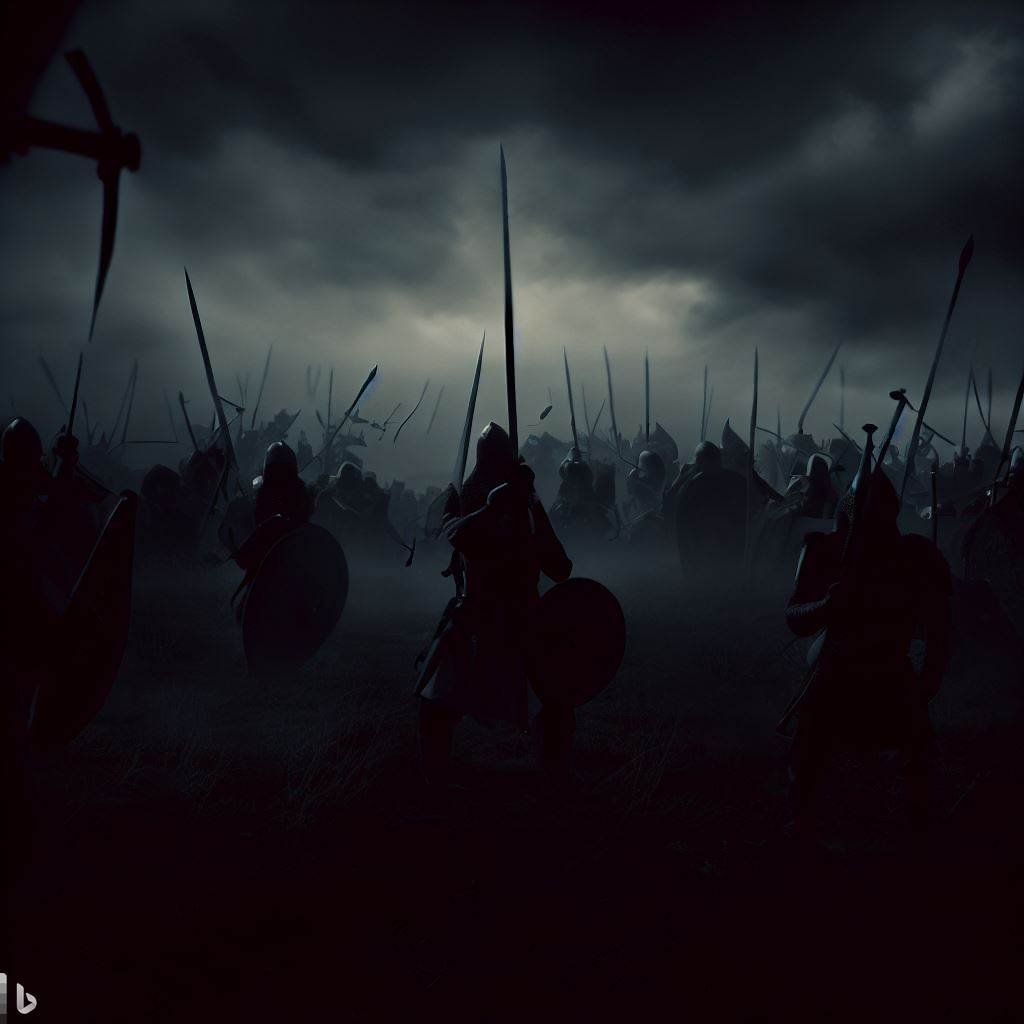
THE BATTLE OF SLUYS
Tide of Blood: A Sailor's Tale from Sluys
The Battle of Sluys: A FRENCH Sailor's Tale
**A fictional account of a French sailor during the Battle of Sluys**
The morning of the 24th of June, 1340, began like any other. I, Jacques le Marin, stood on the deck of our ship, which was clamped amidst the great fleet assembled by King Philip in Sluys harbour. We were a massive flotilla of Norman and Genoese ships-of-war, geared to cut down the English if they dared to make for Antwerp or any ports of Flanders. The chronicles sang of our might; they said we had 400 vessels compared to the English's measly 260. We were confident, and I, Lucien, took pride in our formation: four vast floating platforms formed by ships clamped together, creating a formidable battlefield at sea.
Noon approached when the horizon bore a dark cloud. It was the English fleet, and at its helm, Edward himself, a known tactician. As they entered the harbour, the sea tides roaring high, a sense of foreboding settled upon me. Edward's fleet, smaller but formidable, divided into two lines. I squinted to see the alternating pattern – their largest ships, then ships filled with archers, then men-at-arms, and so forth. It was eerily similar to the ‘Crécy-formation,’ but on the water.
Jacques le Marin, a French sailor in Philip VI’s ‘Great Army of the Sea’
Our vessels stood their ground, waiting. But as soon as they were in range, grappling-irons flew, hooking English vessels to ours. Our once organised harbour now resembled a vast floating raft of entwined, fighting ships. Before we could make our move, a deadly rain fell upon us. English archers, those dreaded bowmen, were using our decks as 'sitting targets'. Their arrows pierced through the thickest of our shields and the strongest of our mail coats. I saw friends, warriors in their prime, cut down in mere moments. The cheerful, proud faces I had breakfasted with were now lifeless, piled three-deep upon our decks.
And then, just as quickly, the second wave hit. English men-at-arms, with a hunger in their eyes, clambered across the hooked vessels, joining the melee. It was pure chaos – the thrum of arrows, the clang of swords, the screams of the dying, and the slippery feeling of blood underfoot. More than once, I nearly lost my footing on our blood-soaked deck.
I remember Yves, the brave archer from Normandy, stationed beside me. He switched from his bow to his sword, trying desperately to defend our ship. The English were relentless. They pushed us, step by step, forcing many to the edge. I witnessed comrades, weighed down by their armour, plunge into the unforgiving sea. Some tried to hide, crouching behind sails, diving under booms, but there was no escaping the English onslaught.
By some stroke of luck or divine intervention, I found myself among the rear squadron of twenty-four French ships that managed to flee. The tales later spoke of Edward’s claim that 30,000 Frenchmen died, though the whispers among the survivors estimated it closer to 10,000 or 12,000. All I knew was that too many brothers-in-arms were lost that day.
The Battle of Sluys was a harsh lesson, a memory forever etched in blood and saltwater. And though I, Lucien, lived to tell the tale, the shadows of that day would haunt me forever.
Altnerative Reads
Source Texts

